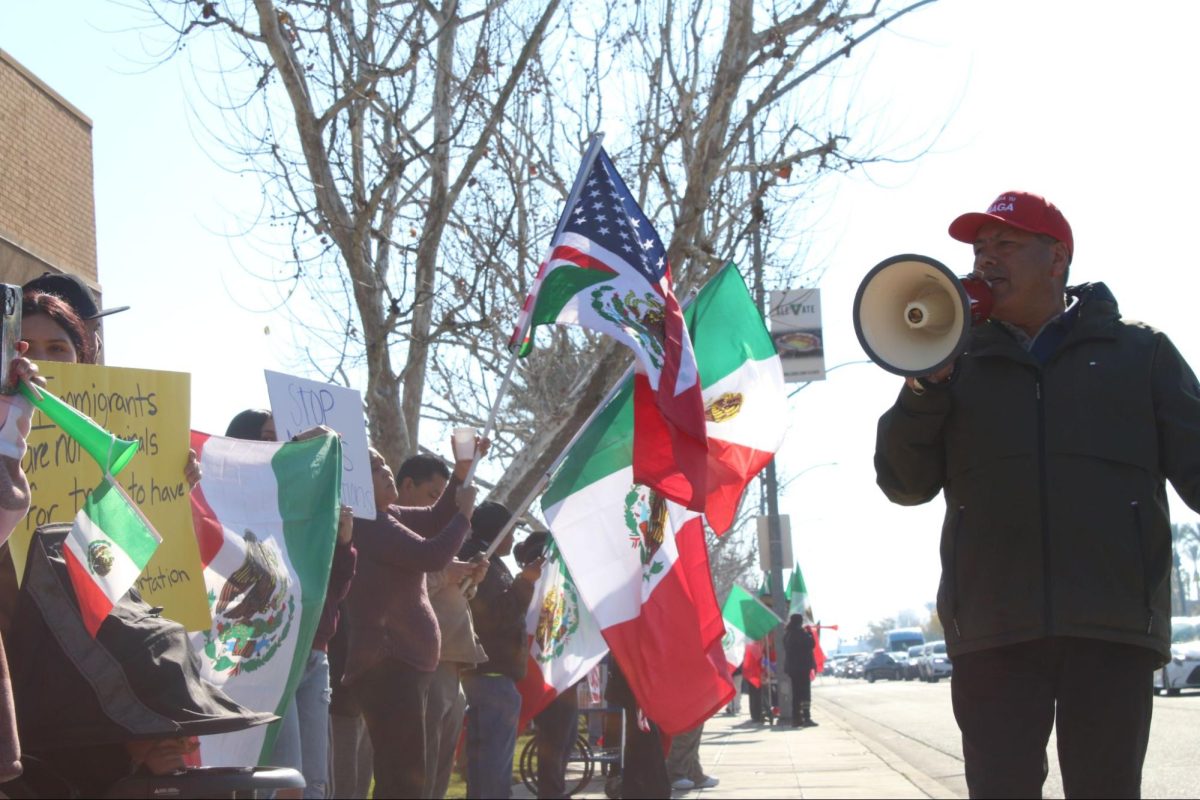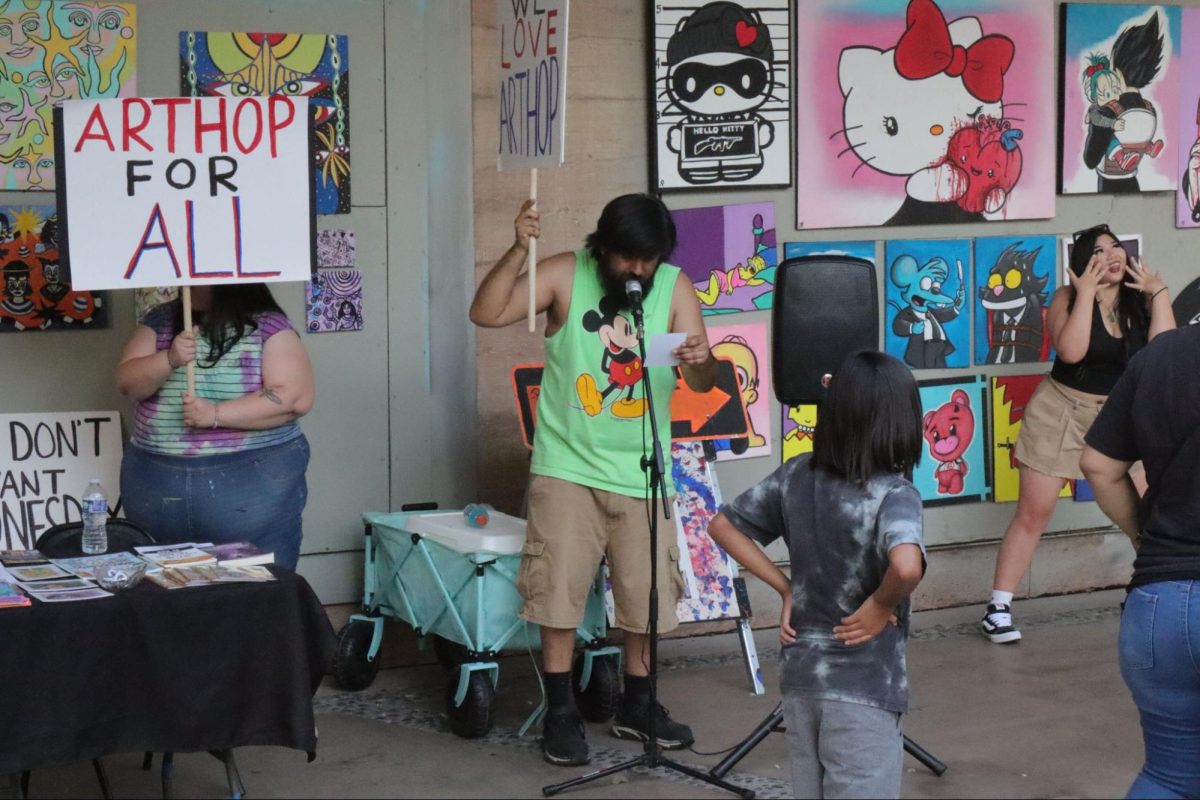On Jan. 20, a second protest was held at Blackstone and Nees by River Park in support of immigrants rights.
It followed up on an initial demonstration that drew over 1,000 attendees on Jan. 12.
The protests came after raids by the U.S. Immigration and Customs Enforcement (ICE) and the U.S. Customs and Border Patrol (CBP) officers in the Central Valley, first reported in Kern County earlier this month.
It also came in response to the inauguration day of Donald Trump to his second-term as U.S. president.
Red cards, a small informational paper containing a list of rights for any individual regardless of immigration status and procedures to take when approached by an immigration official, were handed out at the protest.
The front side reads as follows:
You have constitutional rights:
Do not open the door if an immigration agent is knocking on the door.
Do not answer any questions from an immigration agent if they try to talk to you. You have the right to remain silent.
Do not sign anything without first speaking to a lawyer. You have the right to speak with a lawyer.
If you are outside of your home, ask the agent if you are free to leave and if they say yes, leave calmly.
Give this card to the agent. If you are inside of your home, show the card through the window or slide it under the door.
The backside reads as follows:
I do not wish to speak with you, answer your questions, or sign or hand you any documents based on my 5th Amendment rights under the United States Constitution.
I do not give you permission to enter my home based on my 4th Amendment rights under the United States Constitution unless you have a warrant to enter, signed by a judge or magistrate with my name on it that you slide under the door.
I do not give you permission to search any of my belongings based on my 4th Amendment rights.
I choose to exercise my constitutional rights.
These cards are available to citizens and noncitizens alike.
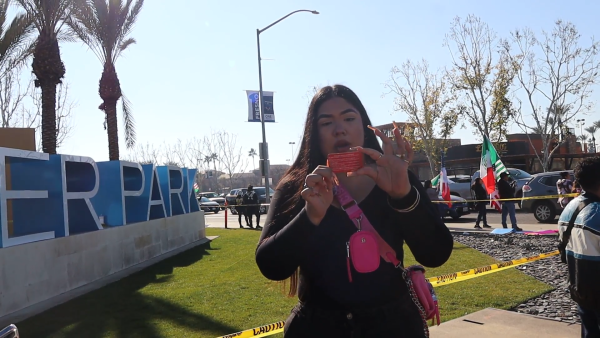
(Photo by: Apollo Soto)
Rosas said her parents immigrated from Mexico at a young age with few possessions.
“We were able to get a better life because of my parents and their sacrifices,” she said.
Rosas felt people don’t understand the impact of farmworkers on their daily lives. She said there was a lack of perspective on the everyday struggles and fears faced by individuals without documentation.
“If you look at the farmworkers, none of them are white. You guys like grapes [and] strawberries, where do you think it comes from,” Rosas said. “They don’t get good healthcare or insurance. They work for an honest dollar [and] they do what they can.”
While her parents are U.S. citizens, they still feel afraid to cross the border into Mexico for visits. The anxiety has increased with the rise of Trump over the past decade, according to her.
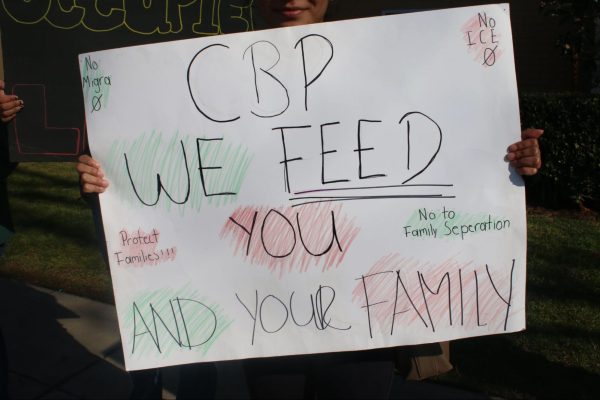
Jose Ireta, a protestor at the event, referred to Trump’s stated plans to conduct mass deportations of immigrants as a “big disaster.” He pointed to the importance of Mexican immigrants in farmworker communities as well as the service industry. Ireta feels the U.S. and Mexico need each other.
“[Mexico] is not ready to receive 12 million people. The U.S. is not ready to lose 12 million people,” Ireta said.

Some demonstrators blew into hand-held horns while cars honked in support. Multiple vehicles circled the protest area throughout the day with individuals chanting out of the sunroof and waving flags out of their windows.
Others held speakerphones to lead chants including “Sí se puede,” a motto used by the United Farm Workers labor union and in support of immigration reform.
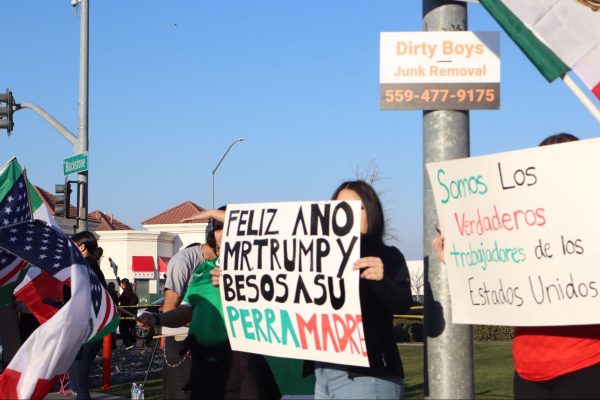
(Photo by: Matthew Echavez)
Ireta lamented increased fears in his community which led to fewer people attending church in-person. Instead, people have been wanting to attend service over the web in fear for their safety, according to Ireta.
“It’s not just [to concern] my people, it’s about [humanity],” he said. “We have to say something. There’s something wrong.”
Ireta recalled several people he has known that have lived in the country for decades without holding citizenship. He pointed to individuals who have worked decades and grew into old age without ever having the opportunity to receive social security.
In criticizing family separations, he recalled a story of an individual who was unable to see his parents for 32 years. He noted a case of someone’s parents dying and being unable to visit their grave due to the likelihood of not being able to reenter the U.S.
“How would you guys feel when you can never see your parents or your family for over 30 or 40 years? Come on. At least give me a permit to go back and forth,” Ireta said.


